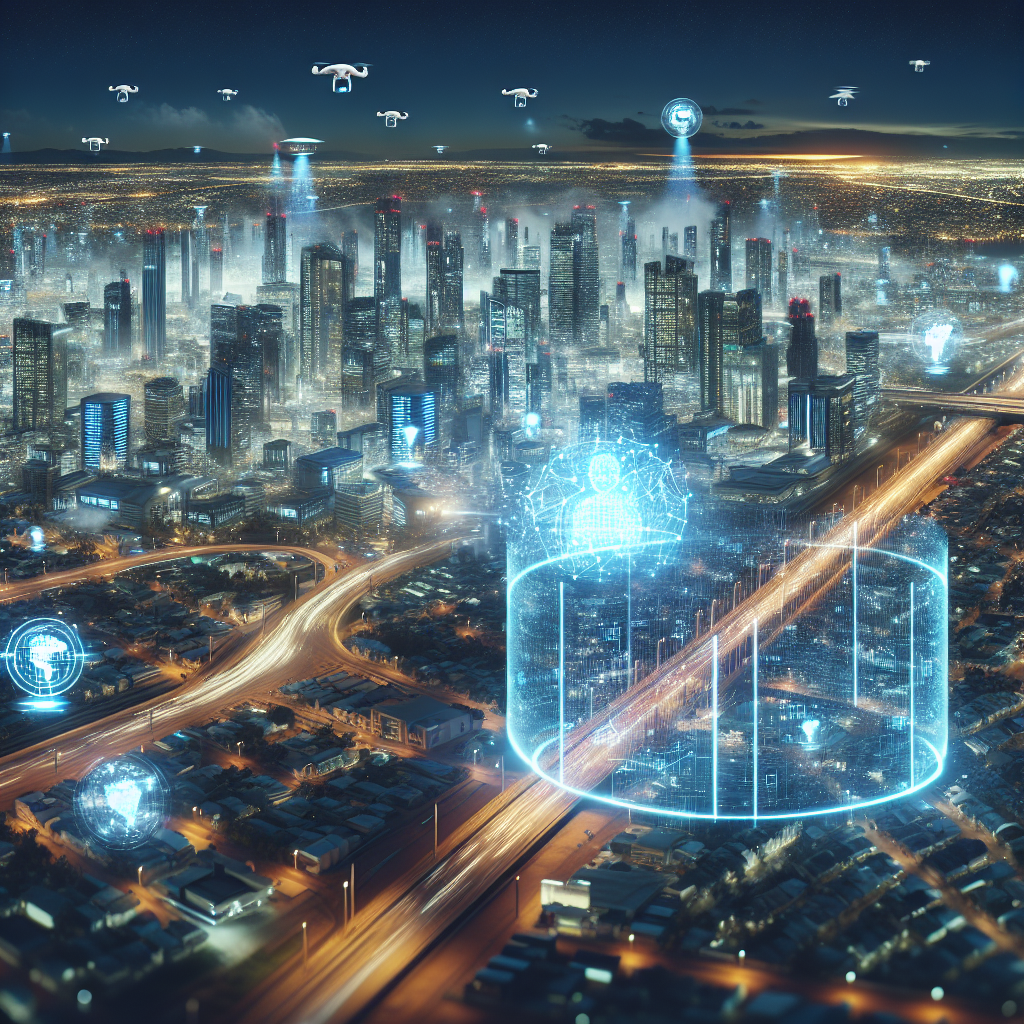Introduction
Smart cities are the future of urban living, with technology playing a central role in improving efficiency, sustainability, and quality of life for residents. Artificial intelligence (AI) is a key component of smart cities, helping to analyze data, optimize services, and automate processes. However, as AI becomes more integrated into the fabric of urban life, concerns about privacy and data protection have come to the forefront.
The right to privacy is a fundamental human right, enshrined in various international and domestic laws. It is the right of individuals to control their personal information and to be free from unwarranted intrusion into their private lives. In the context of smart cities, the collection and analysis of vast amounts of data by AI systems raise significant privacy concerns. This article will explore the intersection of AI and the right to privacy in smart cities, and examine some of the key issues and challenges that arise.
AI and Privacy in Smart Cities
AI technology is used in smart cities for a wide range of applications, from traffic management and energy optimization to public safety and healthcare. These AI systems rely on data collected from various sources, such as sensors, cameras, and mobile devices, to make informed decisions and provide personalized services. While the use of AI in smart cities can bring many benefits, it also raises important privacy considerations.
One of the main concerns with AI in smart cities is the potential for mass surveillance and monitoring of individuals. For example, facial recognition technology can be used to track people’s movements in public spaces, analyze their behavior, and even predict their future actions. This raises significant privacy issues, as individuals may not be aware that they are being monitored or may not have consented to such surveillance.
Another concern is the potential for data breaches and misuse of personal information. The vast amounts of data collected by AI systems in smart cities are often sensitive and highly personal, including location data, health information, and biometric data. If this data falls into the wrong hands, it can be used for malicious purposes, such as identity theft or targeted advertising. Additionally, AI algorithms may contain biases that could lead to discriminatory outcomes, such as in hiring or policing decisions.
The use of AI in smart cities also raises questions about the accountability and transparency of decision-making processes. AI systems are often opaque and complex, making it difficult for individuals to understand how their data is being used and to challenge decisions that affect them. This lack of transparency can erode trust in the technology and the organizations that deploy it, leading to resistance and backlash from the public.
Protecting the Right to Privacy
To address the privacy challenges posed by AI in smart cities, it is essential to implement robust data protection measures and safeguards. This includes ensuring that data is collected and processed in a lawful and transparent manner, with clear consent from individuals. Organizations should also implement privacy by design principles, such as minimizing data collection, anonymizing data where possible, and implementing strong security measures to protect against data breaches.
In addition, regulators and policymakers play a crucial role in safeguarding the right to privacy in smart cities. They can create and enforce laws and regulations that govern the collection, use, and sharing of data by AI systems, ensuring that individuals’ rights are respected and protected. For example, the European Union’s General Data Protection Regulation (GDPR) sets strict rules for data protection and privacy, requiring organizations to obtain consent from individuals before collecting their personal data and to implement measures to ensure data security.
Furthermore, transparency and accountability are key principles in ensuring that AI systems in smart cities are used ethically and responsibly. Organizations should be transparent about how data is collected and used, and should provide individuals with meaningful choices and control over their personal information. They should also be accountable for the decisions made by their AI systems, and should be able to explain and justify those decisions to individuals and regulators.
FAQs
Q: How does AI technology impact privacy in smart cities?
A: AI technology in smart cities can impact privacy in various ways, such as through mass surveillance, data breaches, and lack of transparency. It can lead to the monitoring and tracking of individuals without their consent, the misuse of personal information, and the erosion of trust in technology and organizations.
Q: What can individuals do to protect their privacy in smart cities?
A: Individuals can take several steps to protect their privacy in smart cities, such as being mindful of the information they share online, using strong passwords and encryption, and being aware of their rights under data protection laws. They can also advocate for stronger privacy protections and transparency from organizations and policymakers.
Q: How can organizations ensure that their AI systems in smart cities are privacy-compliant?
A: Organizations can ensure that their AI systems in smart cities are privacy-compliant by implementing privacy by design principles, obtaining clear consent from individuals, and implementing strong security measures to protect against data breaches. They should also be transparent about their data practices and accountable for the decisions made by their AI systems.
Conclusion
AI technology has the potential to revolutionize smart cities and improve the quality of life for residents. However, it also raises significant privacy concerns that must be addressed to ensure that individuals’ rights are respected and protected. By implementing robust data protection measures, ensuring transparency and accountability, and advocating for stronger privacy protections, organizations and policymakers can help to safeguard the right to privacy in smart cities. Only by addressing these challenges can we truly harness the benefits of AI technology in a way that is ethical, responsible, and respectful of individuals’ rights.

